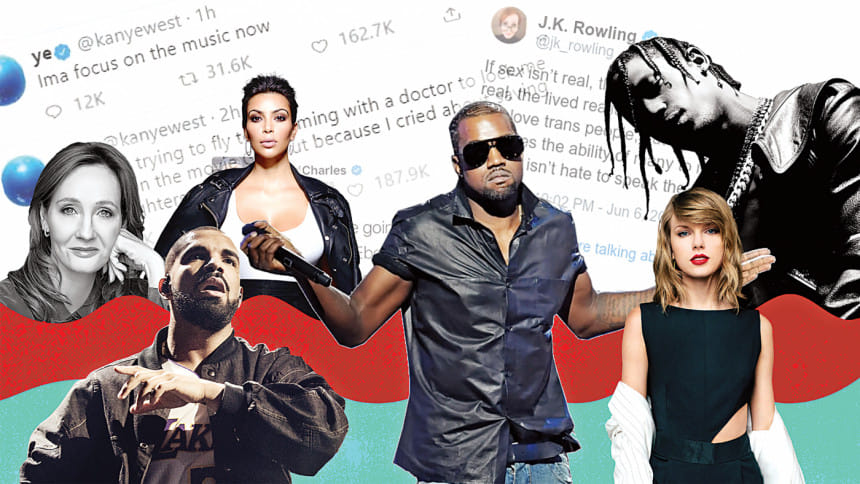Understanding and enjoying critical pop culture analysis

It would not be amiss to say that popular culture is intrinsically present in every part of our life. Whether it is in the increasingly visual mediums that we define as entertainment or it is the messages hidden in media as a whole that reflect our collective subconscious, popular culture is inescapable.
As a result of the wide-ranging impact of this culture in our lives, it becomes almost too necessary to look at it from a critical point of view. After all, our shared culture at this moment in time reflects not just what we're being shown, but the mass desire and collective consciousness that led to the production of that media, along with the values and ideologies of the consumers that engage in that media.
Now, there are questions of finding fake profundity within media that are simply "not that deep" or even "just there for the sake of entertainment" that speak to finding specific ways to criticise media that are pretty harmless. After all, why be a "hater" by delving too deep into media and its intended messages, when the said media was not created to be taken seriously?
However, the media we interact with regularly aren't created in vacuum, it was created with specific intentions, even if sometimes those intentions are dreadfully simple. So, critically analysing our choice movies or music are a way to engage with those intentions, to interact with the media we're routinely consuming.
Not to mention, in this capitalist society where people are more or less working every day and have very limited free time, most forms of entertainment, especially visual entertainment that we consume through television or streaming services, are generally consumed as a form of escapism.
However, critically evaluating a piece of media doesn't just mean needlessly poking at it, but, it means looking at the media we've consumed and not taking it at its often deceptive face value and understanding when specific stories do not reflect real life or falsely present a questionable narrative. After all, engagement with the media is a lot like engagement with real life. They are both forms of surviving in this world. It is not hating on media or being a harbinger of "cancel culture." If we do not question, we do not grow or evolve.
So, what makes up a meaningful analysis of popular culture?
First, cultural criticism or analysis shouldn't be used as a tool to immediately cancel a piece of media. However, if one piece of media is branded with a problematic disposition, it is usually immediately considered cancelled in the eyes of the public. Critical analysis is a nuanced process that looks into the values of individual audiences and what they consider to be acceptable in the media they rightfully consume.
Second, it is important to understand the social and political responsibility of consuming media. Even though there are conversations about woke culture restricting our ability to enjoy all forms of media, it needs to be understood that individual liberty only goes so far in engaging with media that are harmful.
It matters because in all the ways fiction reflects reality, it also restricts the way we know life can be surprising or inhibited. Shoving the portrayal of people into certain boxes means, they cannot break out of those metaphorical boxes the way we know they can in real life.
Finally, it is necessary to acknowledge that analysis of popular culture doesn't mean intellectualising all forms of media to prod and evaluate. There can be shows or movies that genuinely do not have profound problematic intents and it is okay to take it as it is.
However, it is also alright to find deeper meaning in the media we're consuming that was not made with those meanings. Media, like all forms of art, are eventually open to our interpretations, and this form of liberty is what makes the media we enjoy so impactful to us.
Raya Mehnaz enjoys being a hater. Talk to her about disappointing media at fb.com/raya.mehnaz

 For all latest news, follow The Daily Star's Google News channel.
For all latest news, follow The Daily Star's Google News channel. 



Comments